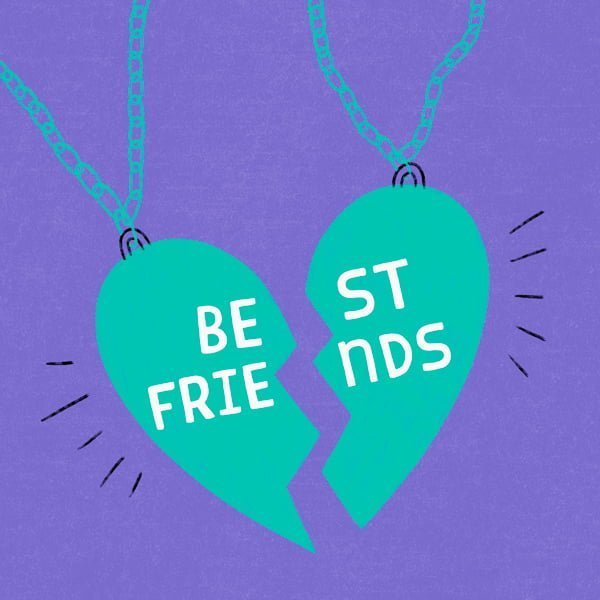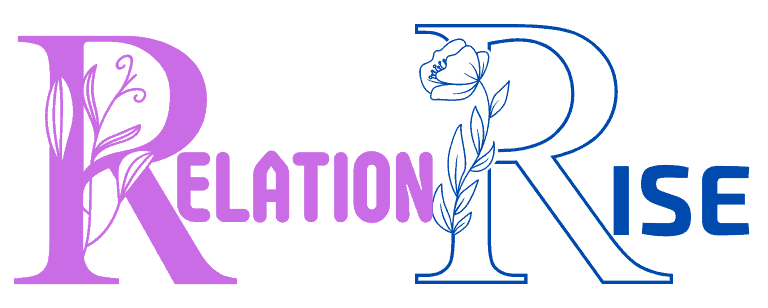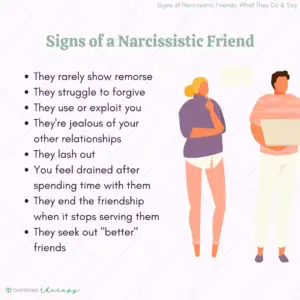What is a Friendship Break
A friendship break is a period of time when two friends take a break from their relationship. During this break, they temporarily disengage from each other to gain clarity or resolve conflicts.
A friendship break can be beneficial for both parties as it allows them to reflect on their individual needs and evaluate the health of their friendship. It provides an opportunity for personal growth and self-discovery, which can strengthen the bond between friends in the long run.
However, it is important to establish clear boundaries and open communication during this break to prevent any misunderstandings or further damage to the relationship.

The Definition And Significance Of A Friendship Break
What Is A Friendship Break And Why Does It Happen?
Friendship is an integral part of our lives, providing support, laughter, and companionship. However, there are times when even the strongest friendships need a break. Understanding the definition and significance of a friendship break can help shed light on this phenomenon.
What Is A Friendship Break And Why Does It Happen?
A friendship break refers to a temporary period of distance or separation between friends. It involves a conscious decision to step back from the relationship for a specific period of time. This break can happen due to various reasons, such as:
- Growing apart: Friends may find themselves heading in different directions in terms of interests, goals, or values. A friendship break allows individuals to explore their own paths and discover who they are without the influence of the friendship.
- Conflict or disagreement: Disagreements and conflicts are a part of any relationship, and friendships are no exception. Sometimes, the intensity of the situation may require a break to allow emotions to cool down and provide space for reflection and potential resolution.
- Personal challenges: Life can throw curveballs at us, and during difficult times, individuals may need to prioritize their own well-being. A friendship break can provide the necessary time and energy for self-care and personal growth, allowing individuals to navigate their challenges without adding additional stress to the friendship.
- Over-dependence: Friendships should be balanced, with each person contributing equally. However, when one friend becomes excessively reliant on the other, it can strain the relationship. Taking a break allows both parties to reassess the dynamics and address any imbalances.
- Life transitions: Transitions such as moving to a new city, starting a new job, or entering a committed relationship can significantly impact friendships. A break can help friends adjust to the changes and create space to adapt to their new circumstances.
- Time for evaluation: A friendship break can serve as an opportunity to reassess the value and significance of the relationship. It allows individuals to evaluate whether the friendship is healthy, supportive, and positively contributing to their lives.
Taking a break from a friendship does not necessarily mean the end of the relationship. It can be a way to regain perspective, reestablish boundaries, and develop a deeper understanding of oneself and the friendship. When approached with open communication and mutual respect, a friendship break can pave the way for a stronger, more fulfilling relationship in the future.
The Different Types Of Friendship Breaks
Temporary Breaks Vs. Permanent Breaks – Understanding The Distinction
Friendship breaks can be categorized into two main types: temporary breaks and permanent breaks. Understanding the distinction between these two types is crucial in managing and navigating through different friendship dynamics.
Here are the key points to consider:
- Temporary breaks:
- Temporary breaks refer to periods of time when friends consciously decide to take a pause in their friendship.
- These breaks are usually short-term and have a specific purpose or reason behind them.
- Reasons for temporary breaks can include personal growth, career changes, travel commitments, or the need for space and self-reflection.
- Temporary breaks often allow friends to recharge, reassess their priorities, and gain clarity about their individual lives.
- Communication is still maintained during temporary breaks, although at a reduced frequency or intensity.
- These breaks are aimed at strengthening the bond and mutual understanding between friends.
- Permanent breaks:
- Permanent breaks signify the end of a friendship with no intent or possibility of rekindling the connection.
- These breaks occur when friends realize that their values, interests, or life paths have diverged to such an extent that they can no longer maintain a meaningful or healthy relationship.
- Reasons for permanent breaks can include betrayal, major conflicts, growing apart, or feelings of toxicity within the friendship.
- Communication ceases or is severely limited during permanent breaks.
- These breaks allow individuals to create space for new connections and focus on relationships that bring them joy and fulfillment.
- Accepting and embracing the end of a friendship can be challenging, but it can also lead to personal growth and the opportunity to attract healthier and more supportive relationships in the future.
Understanding the distinction between temporary breaks and permanent breaks can help individuals navigate their friendships with clarity, empathy, and intention. It is important to respect and honor the needs and boundaries of both oneself and the other person involved in order to maintain healthy and fulfilling relationships.
How To Recognize The Signs Of A Friendship Break
Identifying The Red Flags And Warning Signs That Indicate A Friendship Is In Need Of A Break.
Friendships are an important aspect of our lives, providing companionship, support, and shared experiences. However, there are times when a friendship may start to deteriorate, and a break becomes necessary. Recognizing the signs early on can help to minimize the emotional toll and allow for a healthier resolution.
Here are some key points to consider when identifying the red flags and warning signs that indicate a friendship is in need of a break:
- Lack of communication: When communication becomes scarce or superficial, it may be a sign that the friendship is struggling. Conversations become less frequent, and both parties may feel disconnected or misunderstood.
- Constant conflicts: Experiencing frequent disagreements or arguments that never seem to be resolved can be exhausting and draining for both individuals. This ongoing tension can create a toxic atmosphere within the friendship.
- Unbalanced effort: A healthy friendship should involve mutual effort and investment from both parties. However, if one person consistently takes more than they give or shows little interest in maintaining the relationship, it can lead to resentment and dissatisfaction.
- Changing priorities: Life circumstances and priorities often shift over time. If one person’s interests, values, or goals no longer align with those of their friend, it can create distance and make the friendship feel incompatible.
- Feeling drained or unfulfilled: When spending time with a friend consistently leaves you feeling emotionally drained, unhappy, or unfulfilled, it may be an indication that the friendship is no longer providing the support and joy it once did.
- Lack of trust: Trust is a fundamental aspect of any friendship. If trust is repeatedly broken or if there is a general lack of trust between both individuals, it can erode the foundation of the friendship.
- Feeling unappreciated or undervalued: Friendships should offer a sense of validation and support. If you consistently feel unappreciated or undervalued by your friend, it may be a sign that the friendship is unbalanced or unhealthy.
- Avoidance or withdrawal: When one person starts to avoid or withdraw from the friendship, either by canceling plans or being less present, it can indicate a lack of interest or willingness to invest in the relationship.
- Lack of shared interests: Over time, friendships may naturally evolve as individuals grow and change. If you find that you have fewer shared interests or activities, it can lead to a sense of disconnection.
- Feeling unsupported: A strong friendship should provide a sense of support during both good and challenging times. If you consistently feel unsupported or that your friend is not there for you when you need them, it may be a sign that the friendship is faltering.
Recognizing these signs and being honest with yourself about the state of your friendship is essential for determining if a break is needed. Remember, taking a break doesn’t mean the end of the friendship but rather a pause to reassess, heal, and potentially find a healthier way forward.
Navigating A Friendship Break: Dos And Don’Ts
Friendship breaks can be a challenging and emotional experience. Whether due to disagreements, distance, or personal growth, taking a break from a friendship is sometimes necessary. However, it’s important to handle this period in a healthy and constructive manner. Here are some practical tips for navigating a friendship break:
Practical Tips For Handling A Friendship Break In A Healthy And Constructive Manner:
- Open communication:
- Prioritize open and honest communication throughout the friendship break.
- Express your feelings and concerns with your friend, allowing for mutual understanding.
- Avoid holding grudges or keeping emotions bottled up, as it may hinder the healing process.
- Establish boundaries:
- Clearly define the boundaries of the friendship break, such as the duration and level of contact.
- Respect each other’s need for space and time apart.
- Avoid excessive checking or monitoring of each other’s social media profiles, as it can prolong the healing process.
- Self-care:
- Focus on self-care and personal growth during the friendship break.
- Engage in activities that bring you joy and help you maintain a positive mindset.
- Surround yourself with supportive friends and family who can help you navigate through this period.
- Reflect and learn:
- Take the opportunity to reflect on the friendship and identify areas for personal growth.
- Learn from the dynamics that led to the friendship break and work on improving yourself.
- Use this time to gain clarity on your own needs and expectations from friendships.
- Avoid gossip and negative energy:
- Refrain from engaging in gossip or spreading negativity about your friend, as it can further damage the friendship.
- Focus on positive aspects of your own life and maintain a respectful attitude towards your friend.
- Seek support:
- Reach out to trusted friends, family, or a therapist for support and guidance during this challenging time.
- Discussing your feelings with someone who understands and can provide valuable insights can be beneficial.
- Reevaluate and reconnect (if desired):
- After the friendship break, take time to reevaluate the value of the friendship in your life.
- If both parties are willing, initiate a conversation to discuss the possibility of reconciling and rebuilding the friendship.
- Approach the reconnection process with an open mind and willingness to understand each other’s perspective.
Remember, friendship breaks can be an opportunity for personal growth and self-discovery. By prioritizing open communication, setting boundaries, and practicing self-care, you can navigate this challenging period in a healthy and constructive manner.
What are the Signs of a Friendship Break and How to Mend It?
Recognizing the signs of a friendship break is essential to mend it. Lack of communication, feeling distant, and unresolved conflicts are common indicators. To mend the relationship, open and honest communication is key. Expressing your feelings through best friend poems that convey your sentiments can help bridge the gap and rebuild the bond.
Frequently Asked Questions Of What Is A Friendship Break
What Is A Friendship Break And When Should You Consider Taking One?
A friendship break is a period of time where both friends take a step back from the relationship to reassess their needs and priorities. It’s important to consider taking one when you feel overwhelmed, misunderstood, or when the friendship becomes toxic.
How Long Does A Friendship Break Usually Last?
The duration of a friendship break varies depending on the individuals involved and the purpose of the break. It can range from a few weeks to several months, allowing both friends enough time to reflect and rediscover themselves.
What Are The Potential Benefits Of Taking A Friendship Break?
Taking a friendship break can lead to personal growth, increased self-awareness, and a deeper understanding of oneself and the friendship. It allows for the space needed to address any underlying issues, nurturing a healthier and more fulfilling friendship in the long run.
How Can You Navigate A Friendship Break Without Damaging The Relationship?
Open and honest communication is crucial during a friendship break. Set clear boundaries, express your intentions, and maintain respect for each other’s needs and feelings. Regular check-ins and investing in self-care can contribute to a successful navigation of the break.
Conclusion
A friendship break can be a necessary and healthy way to evaluate and rejuvenate a friendship. Taking time apart allows individuals to reflect on their own needs, desires, and boundaries. It can also provide a valuable opportunity to assess the dynamics of the relationship and determine if changes need to be made for the friendship to thrive.
Communication is key during a friendship break, as open and honest conversations can help establish expectations and prevent misunderstandings. It’s important to remember that a friendship break is not a permanent or negative ending. Instead, it is a temporary pause that can lead to growth and ultimately strengthen the bond between friends.
So, if you find yourself in need of some space, don’t be afraid to discuss the possibility of a friendship break—it might be just what your friendship needs to flourish in the long run.





